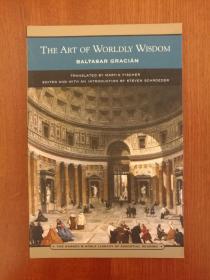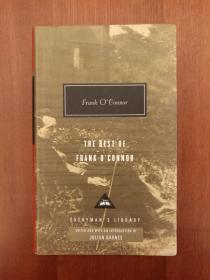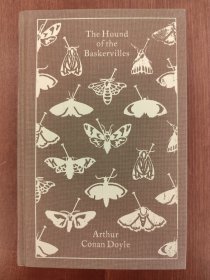
Anti-Education: On the Future of Our Educational Institutions(现货,实拍书影)
¥ 85 九五品
仅1件
送至北京市朝阳区
运费快递 ¥10.00
作者Friedrich Nietzsche (author); Damion Searls (translator); Paul Reitter(editor); Chad Wellmon (editor)
出版社NYRB Classics
ISBN9781590178942
出版时间2015
装帧平装
页数160页
货号A30
上书时间2019-03-28
评价24好评率 100%
- 在售商品 暂无
- 平均发货时间 11小时
- 好评率 100%
- 最新上架
商品详情
- 品相描述:九五品
-
全新书未曾使用(见实拍书影)。
3@A11
- 商品描述
-
In 1869, at the age of twenty four, the precociously brilliant Friedrich Nietzsche was appointed to a professorship of classical philology at the University of Basel. He seemed marked for a successful and conventional academic career. Then the philosophy of Schopenhauer and the music of Wagner transformed his ambitions. The genius of such thinkers and makers, the kind of genius that had emerged in ancient Greece, this alone was the touchstone for true understanding. But how was education to serve genius, especially in a modern society marked more and more by an unholy alliance between academic specialization, mass market journalism, and the militarized state? Something more than sturdy scholarship was called for. A new way of teaching and questioning, a new philosophy . . .
What that new way might be was the question Nietzsche broached in five vivid, popular public lectures in Basel in 1872. Anti Education presents a provocative and timely reckoning with what remains one of the central challenges of the modern world.
Friedrich Nietzsche (1844 to1900) was born in Röcken bei Lützen, a farming town outside of Leipzig, to a long line of Lutheran ministers. After his father’s early death from a brain disease, the family relocated to Naumburg an der Saale. Nietzsche attended the Schulpforta boarding school, where he became enamored with the music of Richard Wagner and the writings of the German Romantics, before going on to study at the Universities of Bonn and Leipzig. As a university student, Nietzsche gained a reputation as a classical philologist and discovered Arthur Schopenhauer’s The World as Will and Representation, the “cadaverous perfume” of which would hang over him throughout his career. After a period of compulsory military service, Nietzsche was appointed to the faculty of the University of Basel at the age of twenty four. He published his first book, The Birth of Tragedy, in 1872, but his deteriorating health soon forced him to retire from academia. In the itinerant period that followed, Nietzsche completed his most influential works, including Thus Spoke Zarathustra (1883 to 85, Beyond Good and Evil (1886), and The Antichrist (1888). He suffered a mental breakdown in Turin on January 3, 1889, purportedly at the sight of a horse being beaten by a coachman. Before collapsing, Nietzsche is said to have thrown his arms around the horse’s neck to shield it from the whip. Three days later, he wrote in a letter to his mentor Jacob Burckhardt that he would rather be “a Basel Professor than God.” He was subsequently hospitalized, and lived the rest of his life an invalid in the care of his mother and sister.
Translation from German into English by Damion Searls.
Edited and with introduction and notes by Paul Reitter and Chad Wellmon.
为你推荐

毛泽东 化学工业部最高指示
九品青岛
¥5600.00

史记(五 精装点校本二十四史修订本)中华书局
八五品上海
¥10.00

四大名著
九五品杭州
¥1066.00

小六壬
八五品吉林
¥30.00

高等代数简明教程
九品威海
¥105.00

东晋门阀政治 年月日那页坏了没有了,,里面全新未使用,内容完整,书是正版
九品枣庄
¥25.00

针灸大成校释
七五品西安
¥340.00

续修四库全书(六册)
九品天津
¥100.00

皇帝怎么吃
全新北京
¥20.00

学生广角漫画party2002年11月下半月号,2004年(51.53.54.55.63.64.65.66.68.69.74.75.79)14本合售
八品常州
¥380.00

看不见的中东:深入日常生活的中东之旅
全新遂宁
¥21.19

几何原本·科学元典丛书
九五品白城
¥35.00

近代变局中的历史人物
全新遂宁
¥27.00

高等数学习题解答
八五品济南
¥30.00

物理有机化学:结构与原理/高等学校教材
全新信阳
¥15.00

台湾东大版 “中研院”院士 杜维明《儒家思想:以创造转化为自我认同(四版)》(锁线胶订)2020年5月版
全新北京
¥75.00

70年代老教材 高等学校试用教材(25本合售)工程力学上中 工程数学线性代数 日语 信号与系统上下 电路原理上下 电子线路习题集 工程数学概率论与数理统计 电路电工原理 电路分析基础上下 脉冲数字电路上下 电子线路1-5 工程数学复变函数 数学分析上中下
九品重庆
¥200.00

泉州市技术创新工程邮册带书匣~内33张邮票及光盘一张
八五品泉州
¥39.00

牛津树家庭版 毛毛虫点读
九五品常州
¥229.99

中国民间故事
全新廊坊
¥21.30
— 没有更多了 —
微信扫码逛孔网
无需下载























非常满意!!包装得特别好,老板还手写了收件人,字也很好看[强]
好